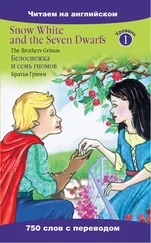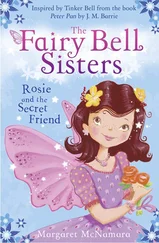Lisa See - Snow Flower And The Secret Fan
Здесь есть возможность читать онлайн «Lisa See - Snow Flower And The Secret Fan» весь текст электронной книги совершенно бесплатно (целиком полную версию без сокращений). В некоторых случаях можно слушать аудио, скачать через торрент в формате fb2 и присутствует краткое содержание. Жанр: Старинная литература, на английском языке. Описание произведения, (предисловие) а так же отзывы посетителей доступны на портале библиотеки ЛибКат.
- Название:Snow Flower And The Secret Fan
- Автор:
- Жанр:
- Год:неизвестен
- ISBN:нет данных
- Рейтинг книги:3 / 5. Голосов: 1
-
Избранное:Добавить в избранное
- Отзывы:
-
Ваша оценка:
- 60
- 1
- 2
- 3
- 4
- 5
Snow Flower And The Secret Fan: краткое содержание, описание и аннотация
Предлагаем к чтению аннотацию, описание, краткое содержание или предисловие (зависит от того, что написал сам автор книги «Snow Flower And The Secret Fan»). Если вы не нашли необходимую информацию о книге — напишите в комментариях, мы постараемся отыскать её.
Snow Flower And The Secret Fan — читать онлайн бесплатно полную книгу (весь текст) целиком
Ниже представлен текст книги, разбитый по страницам. Система сохранения места последней прочитанной страницы, позволяет с удобством читать онлайн бесплатно книгу «Snow Flower And The Secret Fan», без необходимости каждый раз заново искать на чём Вы остановились. Поставьте закладку, и сможете в любой момент перейти на страницу, на которой закончили чтение.
Интервал:
Закладка:
I kissed her cheek. Away from Snow Flower I sometimes let my mind ramble into dark places, but now I loved her as I always had. Oh, how I had missed my laotong.
Our visit to the Temple of Gupo would not have been complete without lunch at the taro stand. Old Man Zuo grinned toothlessly when he saw us with our baby bellies. He made a special meal for us, taking care that he followed all the dietary requirements for our condition. We savored every bite. Then he brought our favorite dish, the deep-fried taro coated in caramelized sugar. Snow Flower and I were like two girls in our giddiness, rather than two married ladies about to give birth.
That night in the inn after we had slipped into our nightclothes, Snow Flower and I lay in bed facing each other. This would be our last night of togetherness before we became mothers. We had learned so many lessons about what we should or shouldn’t do and how these things would affect our unborn children. If my son could respond to hearing profane language or the touch of white jade against my skin, then certainly he had to feel my love for Snow Flower in his little body too.
Snow Flower put her hands on my stomach. I did the same to hers. I had grown accustomed to the way my baby kicked and pushed against my skin from the inside, especially at night. Now I felt Snow Flower’s baby moving inside her against my hands. We were in that moment as close as two women could be.
“I am happy we are together,” she said, then let a finger trace a spot where my baby was reaching out an elbow or a knee to her.
“I’m happy too.”
“I feel your son. He’s strong. Just like his mother.”
Her words made me feel proud and full of life. Her finger stopped, and once again she held my belly in her warm hands.
“I’ll love him as much as I love you,” she said. Then, as she had since the time she was a little girl, she trailed one hand up to my cheek and let it rest there until we both fell asleep.
I would turn twenty in a couple of weeks, my baby would come soon, and my real life was about to begin.

Sons
Lily,
I write to you as a mother.
My baby was born yesterday.
A boy with black hair.
He is long and thin.
My childbearing pollution days are not over.
For one hundred days my husband and I will sleep apart.
I think of you in your upstairs room.
I await word of your baby.
Let it be born alive.
I pray for the Goddess to protect you from any problems.
I long to see you and know you are well.
Please come to the one-month celebration.
You will see what I wrote about my son on our fan.
Snow Flower
I WAS HAPPY THAT SNOW FLOWER’S SON WAS BORN HEALTHY and hoped he would remain so, because life in our county is very fragile. We women hope to have five children who reach adulthood. For that to happen, we must get pregnant every one or two years. Many of those babies die through miscarriages, at childbirth, or from illnesses. Girls—so susceptible to weakness from poor food and neglect—never outgrow their vulnerability. We either die young—from footbinding as my sister died, in giving birth, or from too much work with too little nourishment—or we outlive those we love. Baby boys, so precious, can die just as easily, their bodies too young to have taken root, their souls too tempting for spirits from the afterworld. Then, as men, they are at risk from infection from cuts, food poisoning, problems in the fields or on roads, or hearts that can’t stand the stress of watching over an entire household. This is why there are so many widows. But no matter what, the first five years of life are insubstantial for boys and girls.
I worried not only for Snow Flower’s son but for the baby I carried as well. It was hard to be afraid and have no one to encourage or comfort me. When I was still in my natal home, my mother had been too busy enforcing oppressive traditions and customs to offer me any practical advice, while my aunt, who had lost several unborn children, tried to avoid me completely so that her bad luck would not touch me. Now that I was in my husband’s home, I had no one. My in-laws and my husband had concern for the baby’s well-being, of course, but none of them seemed troubled that I might die delivering their heir.
Snow Flower’s letter felt like a good omen. If childbirth had gone easily for her, surely my baby and I would survive it too. It gave me strength to know that even though we were in new lives, our love for each other had not diminished. If anything, it was stronger as we embarked on our rice-and-salt days. Through our letters we would share our ordeals and triumphs, but as with everything else we needed to follow certain rules. As married women who had fallen into our husbands’ homes, we had to abandon our girlish ways. We wrote stock letters, with accepted formats and formalized words. In part, this was because we were foreigners in our husbands’ homes, busy learning the ways of new families. In part, it was because we did not know who might read our letters.
Our words had to be circumspect. We could not write anything too negative about our circumstances. This was tricky, since the very form of a married woman’s letter needed to include the usual complaints—that we were pathetic, powerless, worked to the bone, homesick, and sad. We were supposed to speak directly about our feelings without appearing ungrateful, no-account, or unfilial. Any daughter-in-law who lets the real truth of her life become public brings shame to both her natal and husband’s families, which, as you know, is why I have waited until they were all dead to write my story.
At first I was lucky, because I didn’t have anything bad to report. When I became betrothed, I’d learned that my husband’s uncle was a jinshi, the highest level of imperial scholar. The saying I had heard as a girl—”If one person becomes an official, then all of his family’s dogs and cats go to heaven”—now became clear. Uncle Lu lived in the capital and left the care of his holdings to Master Lu, my father-in-law, who was out most days before dawn, walking the land, speaking with farmers about crops, supervising irrigation projects, and meeting with other elders in Tongkou. All accounts and responsibility for what happened on the land rested on his shoulders. Uncle Lu spent the money with no concern for how it arrived in his coffers. He had done so well that his two youngest brothers lived in their own nearby houses—though not as fine as this one. They often visited with their families for dinner, while their wives called almost daily to our upstairs women’s chamber. In other words, everyone in Uncle Lu’s family—the dogs and cats, all the way down to the five big-footed servant girls who shared a room off the kitchen—benefited from his position.
Uncle Lu was the ultimate master, but I secured my place by being the first daughter-in-law and then by giving my husband his first son. As soon as my baby was born and the midwife put him in my arms, I was so blissful that I forgot the pain of childbirth and so relieved that I didn’t worry about all the bad things that could still happen to him. Everyone in the household was happy and their gratitude came to me in many forms. My mother-in-law made me special soup with liquor, ginger, and peanuts to help my milk come in and my womb shrink. My father-in-law sent through his concubines blue brocaded silk so that I might make his grandson a jacket. My husband sat and talked to me.
For these reasons I have told the young women who have married into the Lu family, and the others I eventually reached through my teaching of nu shu, that they should hurry to have a baby boy. Sons are the foundation of a woman’s self. They give a woman her identity, as well as dignity, protection, and economic value. They create the link between her husband and his ancestors. This is the one accomplishment a man cannot achieve without the aid of his wife. Only she can guarantee the perpetuation of the family line, which, in turn, is the ultimate duty of every son. This is the supreme way he completes his filial duty, while sons are a woman’s crowning glory. I had done all this and I was ecstatic.
Читать дальшеИнтервал:
Закладка:
Похожие книги на «Snow Flower And The Secret Fan»
Представляем Вашему вниманию похожие книги на «Snow Flower And The Secret Fan» списком для выбора. Мы отобрали схожую по названию и смыслу литературу в надежде предоставить читателям больше вариантов отыскать новые, интересные, ещё непрочитанные произведения.
Обсуждение, отзывы о книге «Snow Flower And The Secret Fan» и просто собственные мнения читателей. Оставьте ваши комментарии, напишите, что Вы думаете о произведении, его смысле или главных героях. Укажите что конкретно понравилось, а что нет, и почему Вы так считаете.












